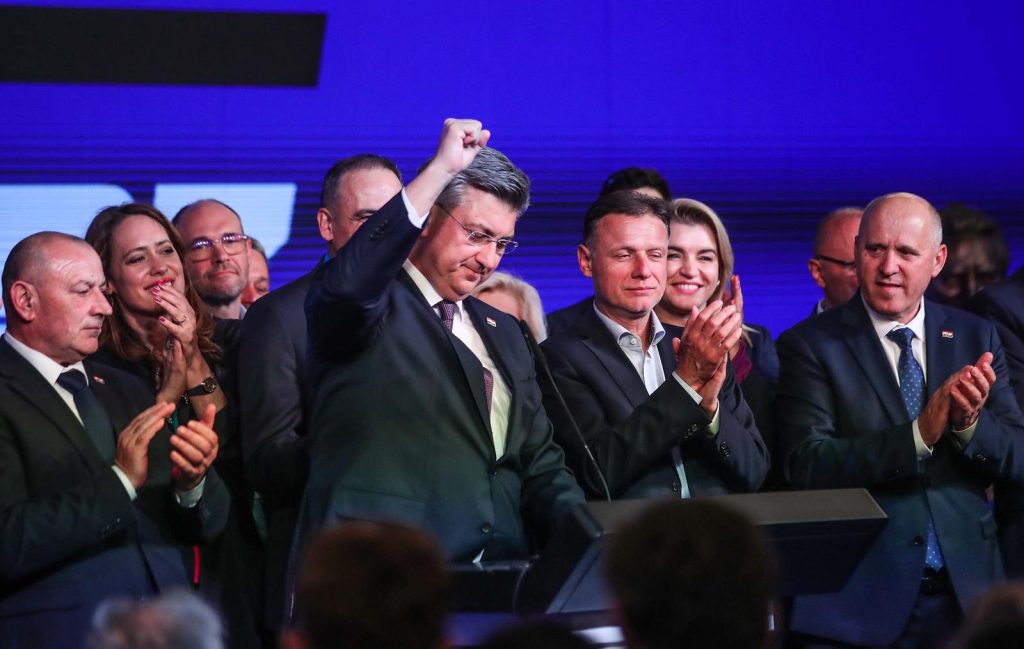April the 18th, 2024 – 76 “hands” are needed in order to put together the new Croatian Government – what happens if nobody has that sum?
As Branimir Perkovic/Index writes, the results of the of the parliamentary elections are fairly certain after more than 99 percent of the votes have been now counted. The HDZ coalition won 61 mandates with 730,000 votes, the Rijeke Pravde (Rivers of Justice) coalition won 539,000 votes and 42 mandates, Homeland Movement (Domovinski Pokret) took 203,000 votes and 14 mandates, Most’s (Bridge) coalition took 170,000 votes and 11 mandates, Mozemo! (We Can!) earned 193,000 votes and 10 mandates. Other smaller parties also earned votes but far less.
Although the HDZ coalition is the obvious (and not shocking) winner of these elections, it doesn’t yet have enough mandates won to form a majority in parliament on its own. Even when the eight mandates reserved for national minorities are added to the 61 mandates won, there are still seven mandates missing from the majority in parliament needed to form a new Croatian Government (76 signatures).
What will happen now and when can we expect a new croatian government?
According to the Croatian Constitution, after counting all the ballots, the State Election Commission must announce the official results. This may take several days. Parties and coalitions can come to an agreement even before the official announcement of the results, based on the provisional results, but before the State Electoral Commission announces the official results, it isn’t possible to form a parliamentary majority.
After the official results of the elections are announced, a 20-day deadline begins, during which the president, currently Zoran Milanović, must convene the parliament for its first session.
A majority of 76 “hands”, which failed to be won by any single party or coalition in these elections, is needed to constitute and start the work of the parliament. Therefore, negotiations are underway to form a majority, and these negotiations have probably already begun. According to the prime minister, talks are ongoing.
The parliament is constituted by the election of the president of the parliament. When someone gathers a parliamentary majority, a new Croatian Government is appointed. If the majority is formed quickly, within a few days, the parliament is constituted within 20 days.
According to the Constitution, the president gives the mandate to form a new Croatian Government to whoever proves that he has the confidence of the majority of representatives in the parliament. This is done by collecting signatures. The person entrusted with the mandate then has 30 days to form a government, which consists of the president, one or more vice presidents and the ministers.
The whole process can take months, it all depends on the agreement reached…
If the mandate holder fails to form the new Croatian Government within 30 days after the president gives him the green light, then the deadline can be extended for an additional 30 days. If success isn’t reached even then, then according to the Constitution, the mandate is given to another person.
Only if the second incumbent fails to form a new Croatian Government within 30 days, new elections are held. Over those 30 days, the president appoints a temporary non-party government that will remain in place until new elections are held and the entire process is repeated, but ends only with the formation of a new government.
This means that the whole process from the day of the actual election can take several months, depending on how quickly the procedure takes place.











